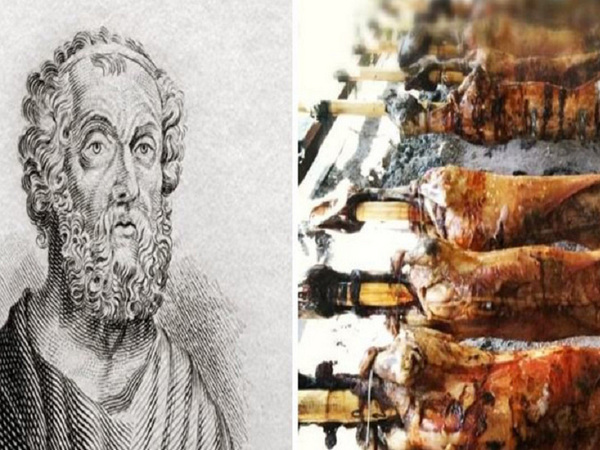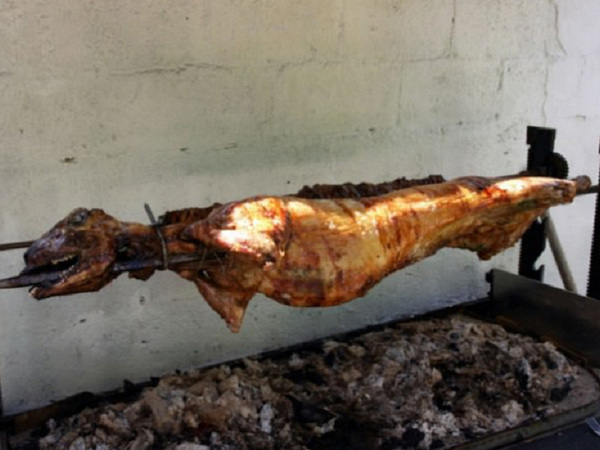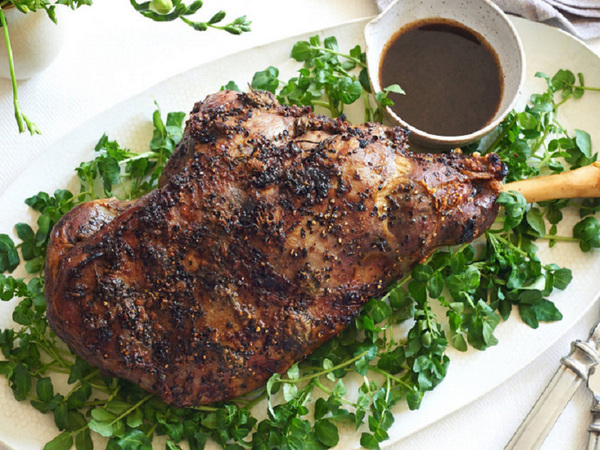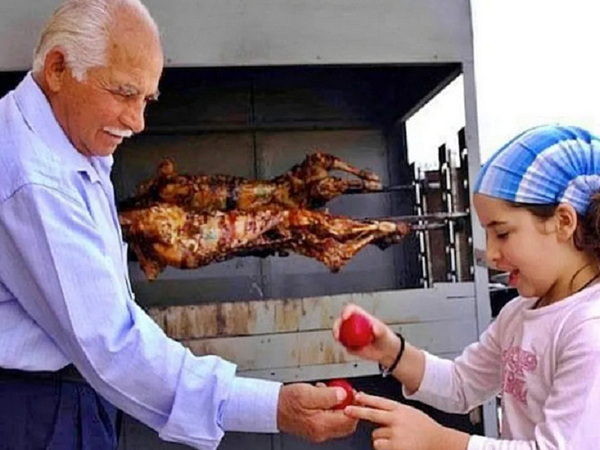The Tradition of Roasting Lamb on Greek Easter
In Greece, Easter is not merely a religious observance; it's a festive occasion that intertwines culture and cuisine, uniting families and communities. At the heart of Greek Easter lies the cherished tradition of roasting a delectable lamb. This ancient custom, steeped in history and tradition, holds significant religious and social importance, symbolizing unity and renewal among the Greek people.
Symbolism of the Lamb
The tradition of roasting lamb on Greek Easter carries profound symbolism rooted in Christianity. Jesus Christ, often referred to as the "Lamb of God," symbolizes purity, sacrifice, and redemption in Christian doctrine. Roasting and partaking of lamb on Easter symbolize Christ's ultimate sacrifice on the cross for the redemption of humanity's sins, fostering a spiritual connection for Greek Orthodox Christians.
Historical Origins
The practice of roasting lamb during Easter traces its origins back centuries, blending early Christian practices with ancient pagan rituals. In ancient Greece, festivities like "Anthesteria" marked the advent of spring, where offerings, including lambs, were made to Dionysus, the god of wine and vegetation. With the Christianization of Greece, these pagan customs merged into Easter celebrations, symbolizing both Christ's resurrection and the rejuvenation of nature.

Family and Community Bonding
Greek Easter fosters familial and communal bonds through joyful celebration. The preparation and roasting of the lamb involve the entire family, reinforcing intergenerational ties and traditions. Selecting the lamb, infusing it with aromatic herbs and spices, and patiently roasting it either on a spit or in an oven is a labor of love that unites generations and nurtures a sense of togetherness.
Extended families and neighbors often convene for a grand Easter feast, where the roasted lamb rightfully claims its place of honor. This communal aspect of the tradition strengthens the fabric of familial and societal bonds, underscoring the significance of kinship in Greek culture.
Culinary Excellence
Greek cuisine boasts a rich tapestry of flavors, with the roasted Easter lamb being a standout example. Greeks take pride in meticulously preparing this dish, employing a medley of herbs, garlic, olive oil, and lemon juice for marination. Slow-cooked to perfection, the lamb yields tender, succulent meat encased in a crispy, golden-brown exterior.
Outdoor spit-roasting, known as "souvla," is particularly favored in rural areas, imparting an additional depth of flavor and authenticity to the dish. The tantalizing aroma of lamb roasting over an open flame is an integral part of the Greek Easter experience, enhancing its culinary allure.

Seasonal Ingredients
Greek Easter, typically occurring in late April or early May, coincides harmoniously with the onset of spring in Greece. This season brings forth an array of fresh herbs, vegetables, and fruits that complement the roasted lamb perfectly. Traditional accompaniments such as Greek salad, tzatziki, and verdant greens accentuate the dining experience, celebrating the vibrant flavors of the season.

Religious Observance
Beyond the festivities, Greek Easter encompasses profound religious observances and spiritual reflection. The Holy Week leading to Easter Sunday is marked by solemn church services and rituals, culminating in the midnight Resurrection Service. Following the somber observances of Good Friday and Holy Saturday, Easter Sunday heralds a jubilant celebration of joy and faith.
Breaking the fast with the first bite of roasted lamb on Easter Sunday carries deep religious significance, signifying the end of fasting and the triumph of life over death, mirroring Christ's resurrection. The lamb, central to the Easter feast, symbolizes hope and renewal for the faithful, embodying the victory of faith.

The tradition of roasting lamb on Greek Easter encapsulates a harmonious blend of history, faith, and culture. It embodies the sacrifice and resurrection of Jesus Christ while honoring the arrival of spring and reinforcing familial and communal ties. Through the preparation and enjoyment of this flavorful dish, generations are bound together, underscoring the enduring values of faith, family, and tradition in Greek society.
As Greeks worldwide gather to rejoice in Easter festivities with succulent roasted lamb, they not only relish its culinary excellence but also partake in a time-honored ritual that connects them to their cultural heritage and deep-rooted beliefs. This tradition stands as a testament to Greece's enduring spirit and the timeless legacy of Easter.